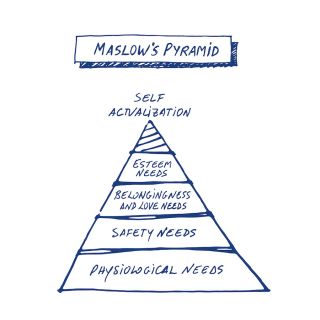Self-Esteem
How Do Self-Esteem and Related Factors Impact Anger Arousal?
Numerous variables associated with self-esteem determine its effect on anger.
Posted January 28, 2023 Reviewed by Vanessa Lancaster
Key points
- A discrepancy between explicit (conscious) and implicit (unconscious) self-esteem is associated with anger suppression and negative affect.
- Emotional dysregulation is a key component in the association of low self-esteem and physical aggression, anger, and hostility.
- Programs to support healthy self-esteem include those that support the cultivation of emotional intelligence and self-compassion.
“Self-esteem” entails our overarching feelings about our worth or abilities and attributes. Healthy self-esteem entails a positive attitude about ourselves, life in general, and our capacity to deal with life’s ups and downs. When we have healthy self-esteem, we are more open, not afraid of conflict, and are not held hostage by the need for perfection.
By contrast, when we have low self-esteem, we view ourselves, the world, and our future through a lens of negativity. This encompasses self-doubt, self-criticism, and pessimism regarding our capacity to successfully meet life’s challenges. Low self-esteem moves us to be sensitive to criticism, closed to feedback, and experience heightened anxiety about being perfect.
Consequently, it makes sense that research supports the association of low self-esteem with a greater propensity for anger arousal. In fact, one huge meta-analysis of 52 studies, a total of 82,358 Chinese student participants, found a negative correlation between aggression and self-esteem (Teng et al., 2015). This was true for physical aggression, hostility, anger, and implicit and explicit aggression, but not verbal aggression.
However, low self-esteem alone is not the sole contributor to anger arousal. Rather, research has identified many variables associated with low and even high self-esteem that might contribute to this tendency.

Explicit and Implicit Self-Esteem
Self-esteem can be described as being “explicit” or “implicit,” with explicit self-esteem being informed by conscious feelings of self-liking, self-worth, and acceptance, while implicit self-esteem is unconscious, automatic, and overlearned self-evaluations (Zeigler-Hill, 2006).
One study explored how explicit and implicit self-esteem discrepancies were associated with anger expression and psychological health (Schroder-Abe et al., 2007). The researchers found that compared to congruent self-esteem, a discrepancy between explicit and implicit self-esteem was related to more anger suppression, a more depressive attributional style, more nervousness, and more days of impaired health.
This applied not only to fragile (High explicit and low implicit) self-esteem but also to “damaged” self-esteem (Low explicit and high implicit). This suggests that high self-esteem may not, in fact, always be a buffer against anger or poor mental and physical health.
Self-Esteem, Narcissism, and Aggression
A relatively recent study of 501 young adults (from the United Kingdom and Malaysia) found that low levels of self-esteem were associated with reactive aggression, while high levels of narcissism were associated with proactive aggression (Amad et al., 2020). They concluded that those with high levels of narcissism might more likely act with deliberate, planned aggression to reach a goal.
Self-Esteem, Emotional Regulation, and Anger
Some studies identify emotional dysregulation as a key component that, combined with low self-esteem, contributes to a greater propensity for physical aggression, anger, and hostility. One such study included 153 incarcerated violent offenders and a community sample of 197 individuals who were asked to complete a measure of self-esteem, emotion regulation, and trait aggression (Garofalo et al., 2016). Emotional dysregulation was a key component in the association of low self-esteem and physical aggression, anger, and hostility.
Another study involving inmates and members of the community found self-esteem and attitude toward violence, associated with emotional dysregulation, to be significant predictors of aggressive behavior (Stefanile et al., 2021).
A more recent study explored the influence of anger management and emotional skills on self-esteem in 234 preadolescents (Estrada-Fernandez et al., 2023). It found a positive relationship between students’ anger regulation and high self-esteem. The researchers concluded by advocating educational programs to improve primary school students’ emotional intelligence.
Self-Esteem, Shame, Anger, and Aggression
In the past two decades, we’ve come to realize the significant role that shame plays in a variety of behaviors and pathology. Consistent with this trend, one such study found feelings of shame were associated with low self-esteem, hostility, and psychological distress for both men and women (Velotti et al., 2017). Additionally, females generally reported higher levels of shame (especially body and behavioral shame, while males evidenced higher levels of self-esteem, emotional suppression, and physical aggression.
Bullying and Self-Esteem
A relatively recent study involved a meta-analysis of children and young students assessing the relationship between self-esteem and cyberbullying (Lei et al., 2020). The analysis identified 61 articles with 49,406 student participants and provided strong evidence regarding the link between self-esteem and cyberbullying.
Another study assessed self-esteem, negative affect, and bullying in 418 students who had been involved in bullying (Wang et al., 2018). It found that bullying was negatively associated with self-esteem and that self-perceived self-efficacy in managing negative affect helped to mediate the impact of low self-esteem.
One study of 575 adolescents found that physical aggression, anger, hostility, and bullying victims were significantly higher in the lowest self-esteem groups among the girls (Valiune & Perminas, 2016). The scores of hostility were especially significant when compared to the highest self-esteem groups among the boys. However, scores of anger were significantly higher in the low self-esteem groups of boys.
Self-Esteem and Suicide: An Expression of Anger Directed Inward
Low self-esteem may play a significant role in self-directed anger related to suicide. This connection was explored by studying psychological autopsies regarding 10 young men ages 18-30 (Rasmussen et al., 2018). Information was gleaned from interviews with 61 closely connected individuals and suicide notes. According to their significant others, these young men experienced intolerable discrepancies between their actual performances and their ideal self-standards.
Four themes emerged from the analysis: (a) striving to find a viable path to life as an adult man; (b) experiencing a sense of failure according to own standards; (c) emotional self-restriction in relationships; and (d) strong feelings of loneliness and rejection of self. Clearly, b, c and d are factors that are associated with low self-esteem.
Stability of Esteem and Anger
One earlier study explored how the stability of high self-esteem might impact the propensity toward anger and hostility (Kernis et al., 1989). Although the sample size was relatively small, participants were assessed for self-esteem every two hours over a twelve-hour period of the day for a week. It was found that those who reported greater variability in their self-esteem versus those with more stable high self-esteem reported especially high tendencies to experience anger and hostility. It appears that fluctuation in self-esteem creates internal tension related to greater vulnerability to such anger.
Recommendations
- A review of this research suggests that assessing any individual’s self-esteem requires identifying those variables that may have a significant impact on the self-esteem of that particular individual.
- Based on this research and my four decades of clinical work with anger management, teaching skills in emotional intelligence should be taught in schools as early as possible as a proactive strategy for building emotional resilience.
- Additionally, parents, teachers, and others who are responsible for child development should also be educated about how to help children develop realistic and healthy self-esteem.
- Further, research shows that self-compassion provides greater emotional resilience and stability than self-esteem–including less self-evaluation, ego-defensiveness, and self-enhancement (Neff, 2011). Consequently, skills in self-compassion should also be part of the education of children and those who work with them.
In general, research supports the finding of a negative association between self-esteem and the propensity for anger arousal. However, many variables need to be fully understood when working with individuals. Nevertheless, if we are to truly help individuals to better deal with anger, it is inherent that we offer children and those responsible for their care programs to help cultivate emotional intelligence and self-compassion.
If you or someone you love is contemplating suicide, seek help immediately. For help 24/7, dial 988 for the National Suicide Prevention Lifeline, or reach out to the Crisis Text Line by texting TALK to 741741. To find a therapist, visit the Psychology Today Therapy Directory.
References
Teng, Z., Liu, Y., Guo, C. (2015). A meta-analysis of the relationship between self-esteem and aggression among Chinese students. Aggression and Violent Behavior, Vol. 21, March-April, 45-54
Zeigler-Hill, V. (Ed.). (2013). Self-esteem. Psychology Press. https://doi.org/10.1093/obo/9780199828340-0124
Schroder-Abe, M, Rudolph, A., & Schutz, A. (2007). High implicit self-esteem is not necessarily advantageous: discrepancies between explicit and implicit self-esteem and their relationship with anger expression and psychological health. European Journal of Personality, Vol. 21, 3, 319-339
Amad, S, Gray, N., & Snowden, R., (2020). Self-esteem, narcissism and aggression: different types of self-esteem predict different types of aggression. Journal of Interpersonal Violence, Vol 36, Issue 23-24
Garofalo, C, Holden, J., Zeigler-Hill, V., et.al., (2016) Understanding the connection between self-esteem and aggression: the mediating role of emotion dysregulation. Aggressive Behavior, Vol. 42, 1, 3-15
Stefanile, C, Matera, C., Nerini, A., et. al. (2021). Psychological predictors of aggressive behavior among men and women. Journal of Interpersonal Violence, Vol 36, 1-2, 920-941, doi.org/10.1177/08862605177337553
Estrada-Fernandez, X., Ros-Morente, A., & Alsinet-Mora, C., (2023). Influence of anger management and emotional skills on self-esteem in pre-adolescents and their relationship with emotional control and psychological well-being. Journal of Psychology and Education, Vol 18, 1, 62-70
Velotti, P, Garofalo, C., Bottazzi, F, et. al., (2017). Faces of shame : implications for self-esteem, emotional regulation, aggression and well-being, Vol 151, 2, 171-184
Lei, H., Weijie, M., Mui, C., et. al. (2020) The relationship between self-esteem and cyberbullying: a meta-analysis of children and youth students. Current Psychology: Research and Reviews, Vol 39, 3, 830-842
Wang, X., Zhang, Y., Hui, Z. et. al. (2018). The mediating effect of regulatory emotional self-efficacy on the association between self-esteem and school bullying in middle school students: a cross-sectional study. International Journal of Environmental Research and Public Health, Vol 15, 5, 991. doi: 10.3390/ijerph15050991.
Valiune, D. & Perminas, A., (2016). Differences in anger, aggression, bullying among adolescents in different self-esteem groups. Global Journal of Guidance and Counseling in Schools: Current Perspectives, Vo 6, 3, 053-059
Rasmussen, M., Dyregrov, K., Haavind, H., et. al. (2018) The role of self-esteem in suicides among young men. Journal of Death and Dying, Vol 77, 3, 217-239
Kernis, M., Grannemann, B., & Barclay, L. (1989) Stability and level of self-esteem as predictors of anger arousal and hostility. Journal of Personality and Social Psychology, Vol 6, 6, 1013-1022
Neff, K. (2011) Self-compassion, self-esteem, and well-being. Social and Personality Psychology Compass Vol 5, 1, 1-12




